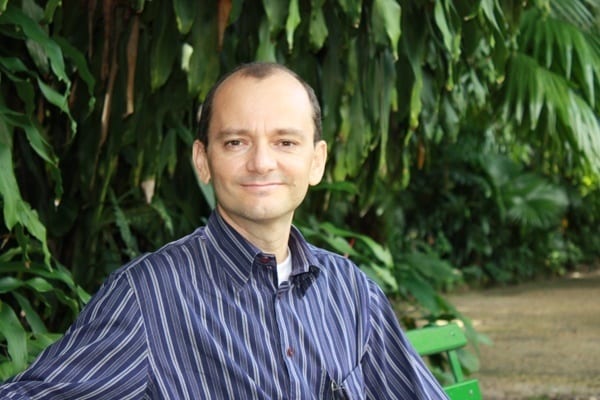

Session: Shifting towards Sustainable Production systems for Beef and Oil Palm
Thursday, 17/Mar/2016 1:00pm – 2:30pm (Local time)
Main Achievements and Challenges faced by Public and Private Actors towards Sustainability (Paulo Barreto – Imazon)
Background
Private sector actors are making significant efforts to green their supply chains, while at the same time ensuring they are more socially responsible. These efforts include improving supply chain management, which accounts for environmental outcomes and reduces tropical deforestation, supports production systems that are more efficient in the use of natural resources, and increases attention to smallholder integration within value chains.
The Brazilian Amazon and Indonesia receive increased attention when it comes to managing environmental outcomes, as two regions with some of the largest remaining tropical forests in the world. As emerging economies, the challenge of balancing social, economic and environmental goals is great. Brazil has made much progress in reducing deforestation, and Indonesia is endeavoring to achieve similar successes. On the one hand, governments are establishing frameworks and actions to contain deforestation to levels that are socially and legally acceptable. On the other hand, progressive private sector actors in tropical agricultural commodities – including consumer goods companies, retailers, traders, processors and suppliers – are making ambitious commitments to “Zero Deforestation”.
However, it is likely that halting deforestation will work against social and economic goals, if the conditions for transitioning towards a more intensive and eco-efficient agriculture are not in place. Therefore, finding a way to coordinate disparate public and private interests, across multiple scales, is of the utmost importance. It is assumed that more effective and durable solutions to reduce deforestation may require establishing strong synergies between private commitments, policies and actions to govern value chains, with public policies to govern and manage natural resources in specific territorial contexts.
In Brazil, important steps were taken to reduce and contain deforestation. These have achieved success with medium and large-scale landholdings, engaging in intensive soy and beef production. Yet, deforestation is still occurring in smallholder lands. In addition conditions are lacking to support agricultural intensification, due to technological, institutional and financial constraints. These constraints may limit the economic benefits that landholders can capture from existing agricultural lands and reduce the capacity of less resource-endowed smallholder farmers to improve their production systems and adapt to new policy demands and practices for higher environmental standards.
In Indonesia, the government is trying to enforce existing tenure and land use policies that prevent the use of fire to clear land for palm oil plantations, and reduce GHG emissions from peatlands. In addition, major corporate groups have embraced “no deforestation, no peat, no exploitation” policies, which apply to their parent companies and third-party suppliers. Nonetheless, corporate policies are facing open opposition from the government who are concerned that blanket no deforestation policies will limit market access for smallholders and fly in the face of national regulations. In addition, companies are facing several challenges when implementing traceability systems involving smallholders.
Panel scope
While contrasting in their development trajectories, as well as in their institutional and economic configurations, Brazil and Indonesia both face relatively similar social and sustainability challenges. Brazil has extensive experience in reducing deforestation and fostering more intensive agriculture, which may provide Indonesia with useful lessons-learned about what works and what doesn’t, where and why. In this regard, it is important to not only to reflect on key institutional changes that have helped slow deforestation in Brazil but the diverse challenges and opportunities that emerge from this slow-down.
While the challenges to move towards a “zero deforestation” scenario based on more sustainable agriculture are great, there are clear opportunities to leverage change. These include growing consumer awareness of sustainability issues that translates into market pressure, changes in the standards applied by investors and financial service providers, and local government initiatives to improve territorial management. These opportunities can trigger improved policies, institutional structures and economic conditions to support agriculture that is intensive and allows agribusiness, ranchers and smallholders to maintain or improve profits while containing deforestation.
Questions
The panel will look at what policies, institutional structures and tools are needed not only to halt and contain deforestation, but more importantly to support the transition to more holistically sustainable commodity production. These include questions, such as:
– What are the main policy instruments and incentives, and other institutional factors, which are needed to support this transition?
– How to prevent exclusion and promote inclusion of marginalized groups?
– How to develop more resilient agricultural systems that are more eco-efficient, but at the same time respond to more rigorous supply chain systems?
Speakers
Speakers from IFC Indonesia will join Brazilian Government representatives, experts from Brazilian NGOs and the private sector. This panel will be introduced and moderated by Pablo Pacheco, Principal Scientist at the Center for International Forestry Research (CIFOR). Some speakers will join the panel via video conferencing facilities.
Live here.
This post was published on 17 de March de 2016
States with the most deforestation in January were Mato Grosso, Roraima and Pará Deforestation…
According to the Green Radar report, in 2024, out of the 146 companies assessed, 6…
A survey of more than 3,500 lawsuits showed an increase in punishments, while payment of…
A group made up of specialists from 23 different professions trained in the Sustainable Amazon…
The degraded area increased due to burning, especially in August and September In 2024,…
The program is scheduled to last 15 years and will include local indigenous peoples and…